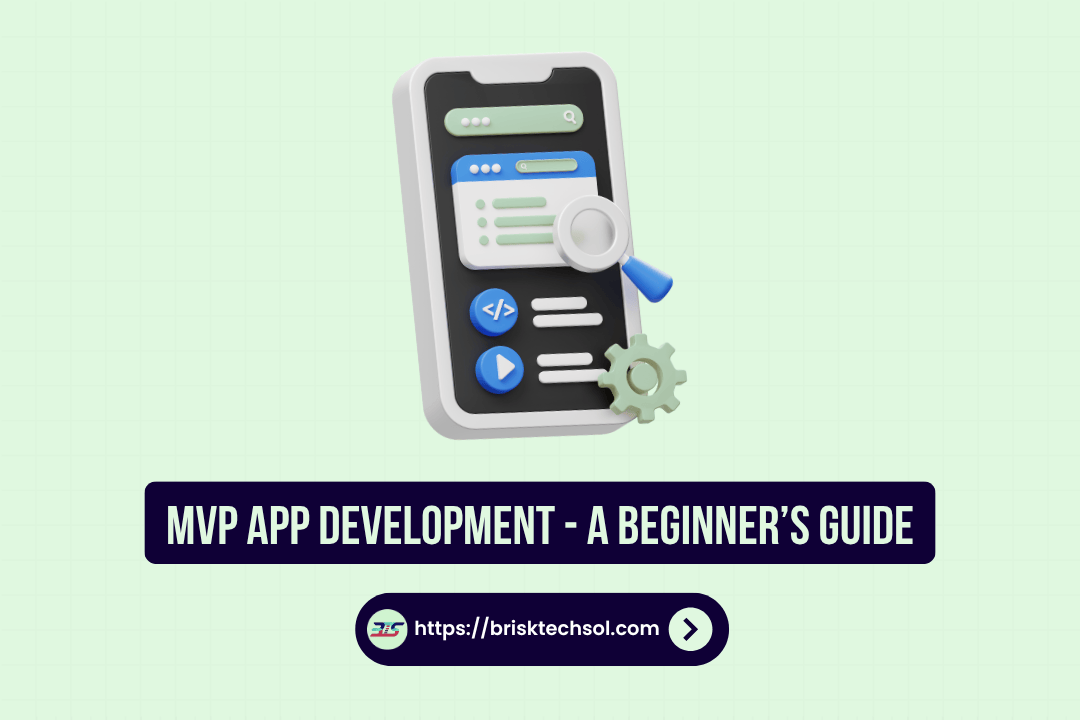Application Programming Interfaces, or APIs, may not always get the spotlight they deserve, but they’re undoubtedly the engine powering some of the world’s most innovative businesses. From enabling seamless app integrations to driving digital transformation, APIs are redefining how companies operate and serve their customers.
But what is it about APIs that makes them so critical? Whether you’re running a small startup, managing an established enterprise, or simply curious about how technology improves business, understanding the importance of APIs offers valuable insight.
In this article, we’ll explore the fundamentals of APIs, their technical components, the business benefits they bring, real world use cases, and where this essential technology is headed. By the end, it’ll be clear why API development is crucial for businesses today and in the future.
What Are APIs?
APIs are sets of rules that allow two pieces of software to communicate with each other. Think of them as digital translators. They enable different applications and services to “speak” to each other, securely exchanging data and functionality without the need to share the inner workings of their code.
From booking a ride through Uber to checking the weather on your smartphone, many everyday interactions are fueled by APIs operating behind the scenes.
APIs can be divided into different types based on their use cases, such as external APIs (available to external developers for integration) and internal APIs (designed for internal business use). Regardless of their type, APIs serve a common goal to streamline processes, provide interoperability, and improve user experiences.
Understanding the Technical Foundations
For developers and tech teams, an API is more than just a concept. It’s a carefully constructed bridge built using specific technical components, including:
1. Endpoints
Endpoints are the touchpoints between two interacting systems. For example, every time your e-commerce site pulls product availability from your inventory database, the API’s endpoints facilitate that connection.
2. HTTP Methods
APIs interact with web protocols such as HTTP. Common HTTP methods used in APIs include GET (retrieving data), POST (creating data), PUT (updating data), and DELETE (removing data).
3. Authentication
Security is a priority with APIs. Authentication mechanisms like API keys, OAuth, and tokens ensure that only authorized users can access the data or functions the API provides.
4. Documentation
Well documented APIs are essential for developers. Think of API documentation as an instruction manual that guides users on how to interact with the interface, including available endpoints, data structures, and request/response examples.
By combining these elements, APIs act as the glue that connects various business systems and tools, forming an integral part of the digital infrastructure.
Why API Development is Crucial for Businesses
For organizations looking to thrive in a highly competitive and tech driven market, APIs are non-negotiable. Here’s why.
1. Improved Efficiency
APIs allow businesses to automate repetitive tasks and processes. Instead of manually transferring data between systems, APIs make it possible to integrate tools seamlessly, ensuring that workflows are fast, accurate, and smooth.
For example, an API can automatically create customer profiles in a CRM software whenever someone fills out a contact form on your website. This reduces manual effort and ensures data consistency.
2. Enhanced Innovation
APIs act as building blocks for new applications and services. They provide businesses with the flexibility to adapt quickly to evolving customer needs and market demands.
Take cloud computing APIs as an example. They allow businesses to experiment with scalable infrastructure without significant upfront costs.
3. Scalability
APIs make it easier to scale operations. Want to expand your e-commerce platform to include a mobile app? An API can ensure your app accesses the same product catalog and inventory systems as your website.
4. Better Customer Experiences
Customer experience is often the key differentiator in the digital age, and APIs help businesses deliver. By connecting tools like chatbots, helpdesk software, and data analytics platforms, APIs help provide faster and more personalized services to customers.
5. Access to Partner Ecosystems
Modern businesses don’t thrive in isolation. APIs allow partnerships to flourish by enabling integration between platforms. For instance, payment gateways like Stripe or PayPal owe much of their success to APIs because they enable e-commerce websites to seamlessly add payment functionality.
Benefits of API Development for Businesses
APIs are not just technical tools; they are strategic assets for businesses. Below are the key benefits:
1. Enhancing Operational Efficiency
APIs streamline internal processes by connecting various systems and automating data exchange. For instance, integrating APIs with Enterprise Resource Planning (ERP) systems can automate workflows like inventory management, order processing, and customer relationship management (CRM), saving time and reducing human error.
2. Improving Customer Experience
APIs play a crucial role in enhancing user experiences. With APIs, businesses can integrate third party services that personalize user interactions. For example, a travel agency can integrate a flight booking API, a hotel reservation API, and a weather API to offer a more personalized and seamless travel booking experience to customers.
3. Fostering Innovation
APIs enable businesses to experiment with new technologies and innovate faster. By exposing functionality through APIs, businesses can encourage external developers to create new applications, services, or features. This can lead to the rapid development of new solutions that might not have been possible otherwise.
4. Data Driven Decision Making
APIs help businesses collect data from multiple sources and systems, which can be used to make informed decisions. Integrating analytics APIs can provide real time insights into customer behavior, operational performance, and other key metrics, driving more data driven decisions.
5. Cost Reduction
By reusing existing APIs, businesses can reduce development costs. Rather than building new systems from scratch, APIs allow businesses to leverage existing infrastructure, leading to faster development cycles and lower overall costs.
API Development and Business Scalability
Scalability is a fundamental aspect of business growth, and APIs are key to achieving it. Here’s how:
1. Enabling Scalability
APIs make it easier for businesses to scale their operations by connecting new systems, applications, or data sources. For example, as businesses grow, they may need to integrate additional payment gateways, customer support systems, or marketing tools. APIs allow for seamless integration, enabling scalability without disrupting existing systems.
2. Support for Globalization
APIs make it easier for businesses to expand internationally. By using APIs to connect with local payment processors, tax systems, or shipping providers, businesses can offer region specific services while maintaining a global operational framework.
3. Integration with Emerging Technologies
APIs also play a pivotal role in adopting new technologies such as Artificial Intelligence (AI), Internet of Things (IoT), and blockchain. APIs facilitate the integration of these technologies into existing business operations, enabling companies to stay competitive and future proof their infrastructure.
4. Cloud and API Synergy
Cloud computing and APIs go hand in hand. APIs allow businesses to integrate cloud services into their systems, offering scalability, flexibility, and the ability to grow without being constrained by on premise infrastructure.
How API Development Drives Revenue Growth
API development is not just a technical necessity it can directly contribute to a business’s bottom line.
1. API Monetization Strategies
Businesses can generate revenue from APIs by offering them as products or services. For instance, software companies may charge other businesses to access their APIs or create usage based pricing models. This API as a product model is increasingly popular, especially among tech companies.
2. Improving Market Reach
APIs allow businesses to extend their product offerings to a larger audience. For example, businesses that provide e-commerce platforms can use APIs to integrate with third party marketplaces like Amazon, eBay, or Etsy, expanding their market reach.
3. Creating New Business Models
APIs enable businesses to create entirely new business models. For instance, Uber and Airbnb used APIs to connect drivers and hosts with users in a seamless way, creating entirely new industries and revenue streams in the process.
4. Partnerships and Collaborations
APIs open the door for businesses to form strategic partnerships. By providing API access, businesses can collaborate with other companies to offer joint products or services, thereby expanding their customer base and increasing their revenue potential.
5. Increased Customer Retention
By enabling APIs that deliver more personalized, efficient services, businesses can improve customer satisfaction, leading to higher retention rates. The more seamless and engaging the customer experience, the more likely customers are to remain loyal.
Real World Success Stories
When you want to understand why API development is crucial for businesses, it’s always helpful to look at real world examples.
Stripe
Stripe is a leader in online payment processing, and its success is heavily tied to its APIs. By offering well documented, easy to use APIs, Stripe allows developers to quickly integrate secure payment systems into websites and mobile apps.
Spotify
Spotify’s APIs have allowed it to integrate with countless other apps, including social media platforms and smart devices. This interoperability enhances the user experience and increases Spotify’s reach.
Salesforce
As a customer relationship management (CRM) giant, Salesforce uses APIs to integrate with tools like marketing platforms and email services. The result is a seamless flow of information across business functions, improving decision making while saving time.
Key Takeaways
- APIs are essential tools for modern businesses, driving efficiency, innovation, and enhanced customer experiences.
- They enable seamless integration between different software systems, reducing manual work and increasing productivity.
- Investing in API development helps businesses stay competitive in an increasingly digital landscape.
- Real world examples show how adopting API powered tools can transform operations and unlock new opportunities.
FAQs
1. What is an API?
An API (Application Programming Interface) is a set of rules and protocols that allow different software applications to communicate and interact with each other. It acts as a bridge, enabling seamless integration of data and functionality between systems.
2. Why are APIs important for businesses?
APIs are essential for businesses as they streamline processes, reduce manual efforts, and enable rapid development of new applications. They help connect various tools and services, improving operational efficiency and enhancing customer experiences.
3. How can investing in APIs benefit my organization?
By investing in APIs, businesses can boost innovation, stay competitive in the digital marketplace, and unlock new revenue streams. APIs allow for the creation of scalable, customizable solutions tailored to unique business needs.
4. What are some real world examples of API usage?
Examples include payment gateways like PayPal integrating with e-commerce stores, social media logins enabling access to websites, and weather services providing data to travel or event apps. These use cases highlight how APIs simplify complex functionalities for end users.
5. Are APIs secure to use?
When implemented correctly, APIs can be very secure. Proper authentication, authorization, and encryption protocols are essential to ensure that sensitive data and systems are protected from unauthorized access.
6. How do I start implementing APIs in my business?
Begin by identifying areas where integration can enhance efficiency or customer experience. Collaborate with developers or a trusted service provider to design and implement APIs tailored to your specific needs. Building a strong API strategy is key to maximizing benefits.









